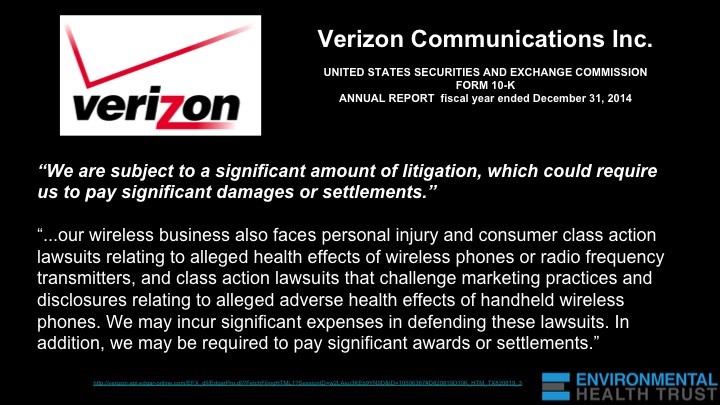 By B.N. Frank
By B.N. Frank
Verizon continues to promote and install 5G throughout the U.S. despite the fact that the telecom industry has provided NO scientific evidence that it’s safe. In fact, research has already proven 5G is harmful (see 1, 2) and many credible individuals and organizations have issued warningsabout it for reasons other than biological and environmental harm.
Since there is research that has already determined that exposure to all sources of wireless radiation is harmful, telecoms have been warning investors they may eventually be held liable for harm. That’s probably why insurance companies won’t cover them anymore (see 1, 2).
Few are signing up for 5G where it’s been installed and reviews have been bad. Regardless, Verizon will not be deterred. From Ars Technica:
SourceVerizon yesterday announced its first 5G hotspot, namely the Inseego MiFi M1000 that Verizon is selling for $650. On top of the device cost, the monthly fees for 5G service will be higher than 4G even though Verizon’s 5G network barely exists.Verizon said hotspot-only plans “start at $85 a month (plus taxes and fees).” Verizon describes the $85-per-month hotspot plan as “unlimited” when you go through the online checkout process. But the fine print states that customers get 50GB of high-speed 5G data, and 5G speeds are reduced to 3Mbps after that. The plan treats 5G and 4G data separately; it provides 15GB of high-speed 4G data and slows users down to 600kbps after that. Verizon allows 4K video streaming on 5G, while limiting video on the 4G network to 720p.The carrier noted that the $85 monthly price is “only a $10 increase over 4G LTE service.” But the 5G device’s $650 price is three to four times higher than Verizon’s Jetpack hotspots, and the extra $10 a month provides access to a 5G network that exists only in five cities: Chicago; Denver; Minneapolis; Providence, Rhode Island; and St. Paul, Minnesota. Verizon says it will have 5G service in 30 cities by the end of this year.Early reviews of Verizon’s 5G service found spotty coverage, so even in those five cities your 5G hotspot might frequently drop down to 4G. Verizon has said its 5G users “should expect typical download speeds of 450Mbps, with peak speeds of above 1.5Gbps and latency less than 30 milliseconds.”
No comments:
Post a Comment